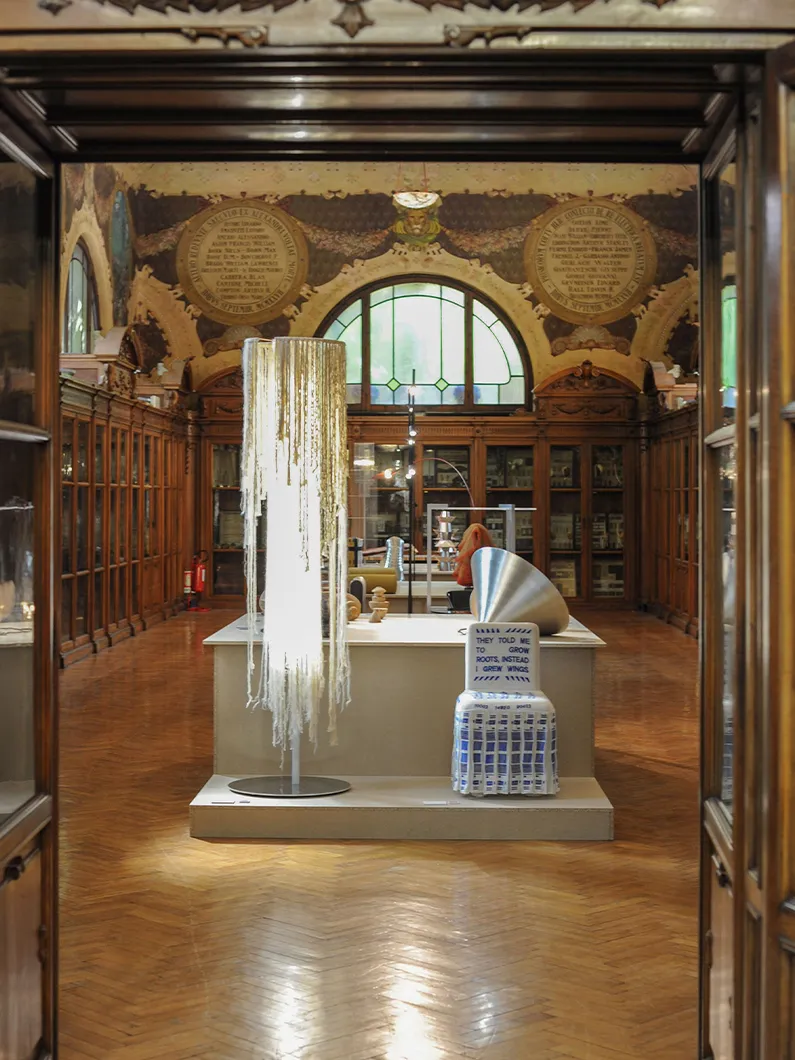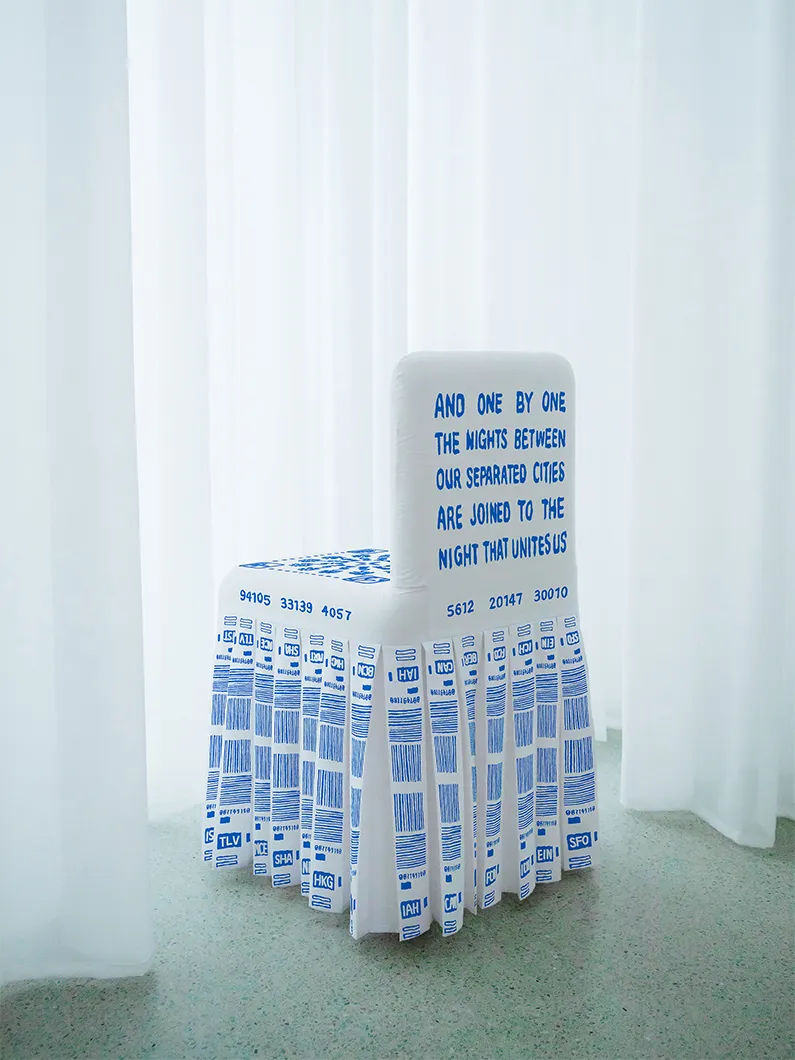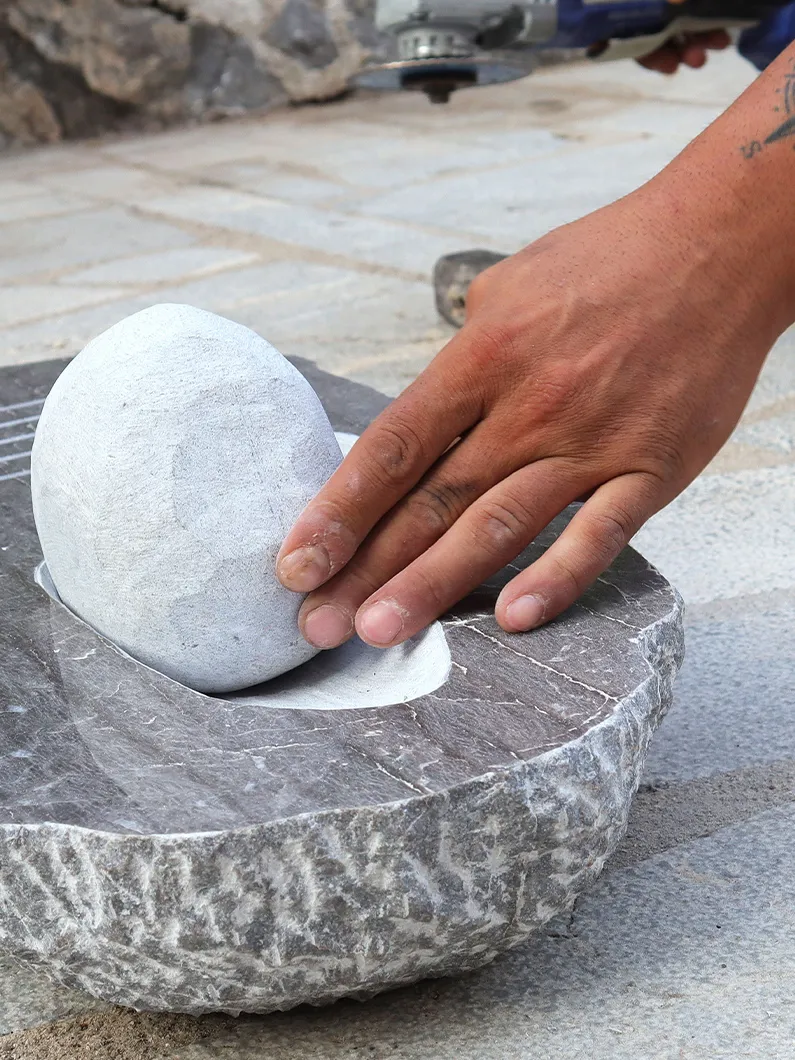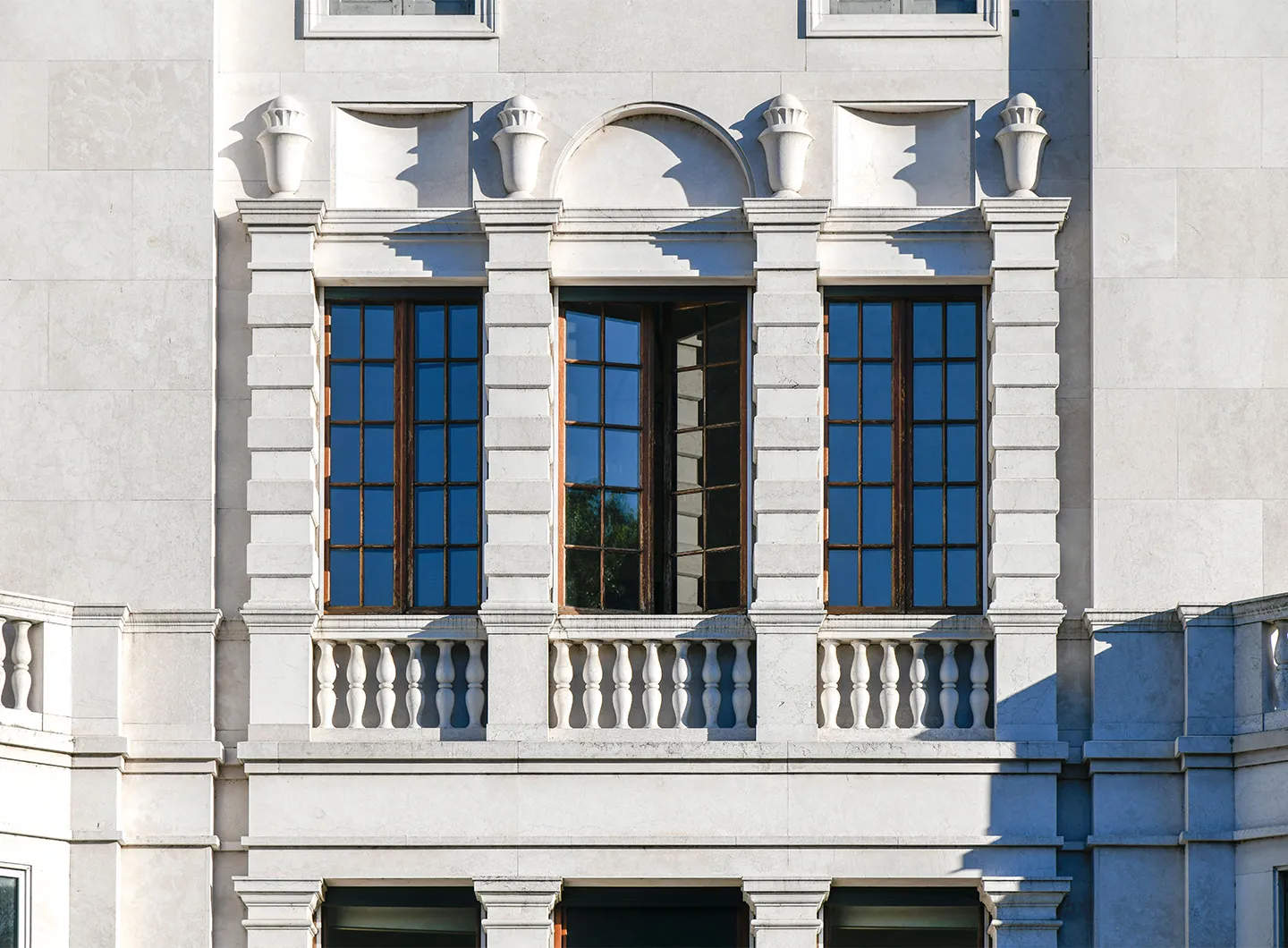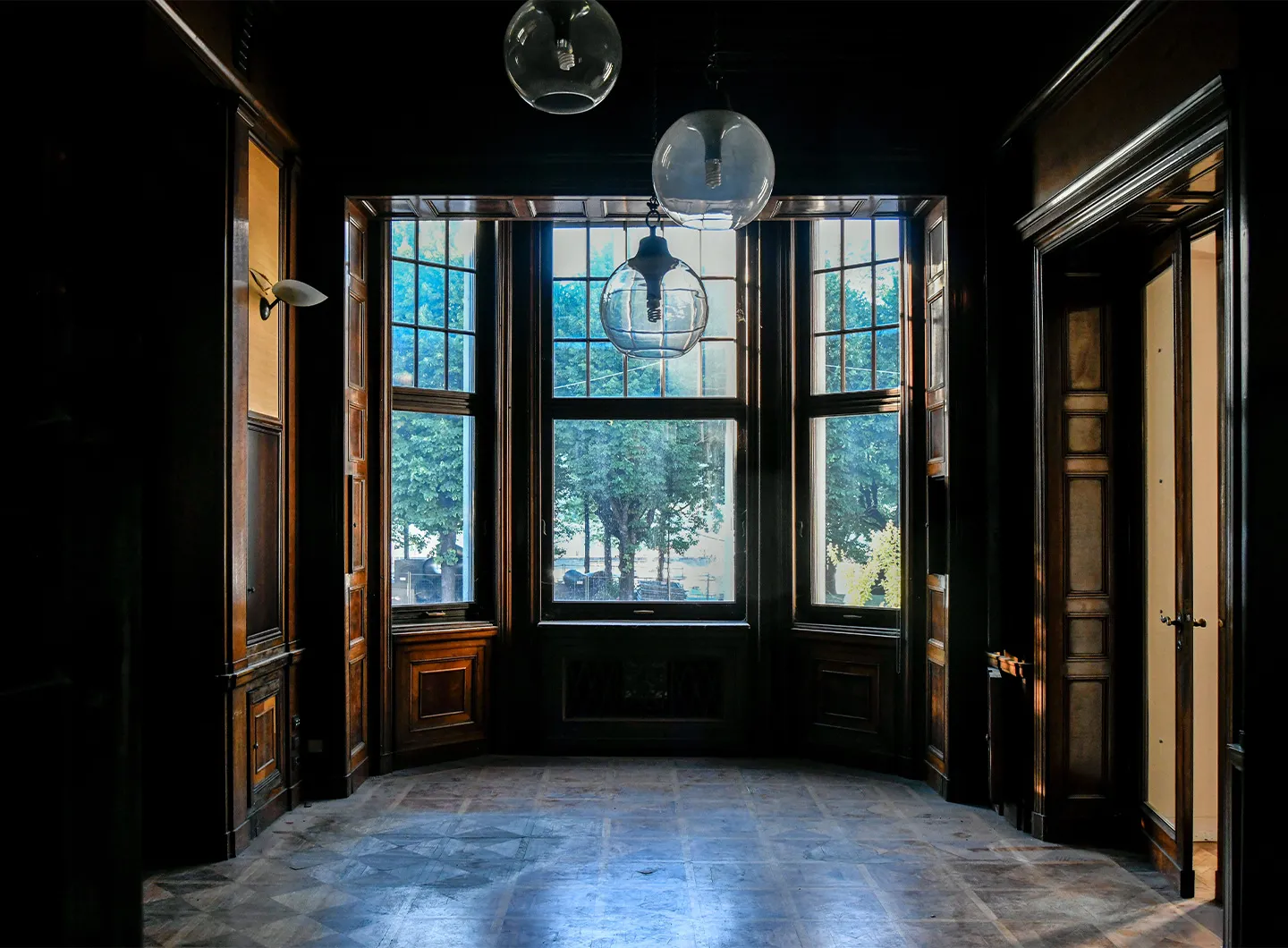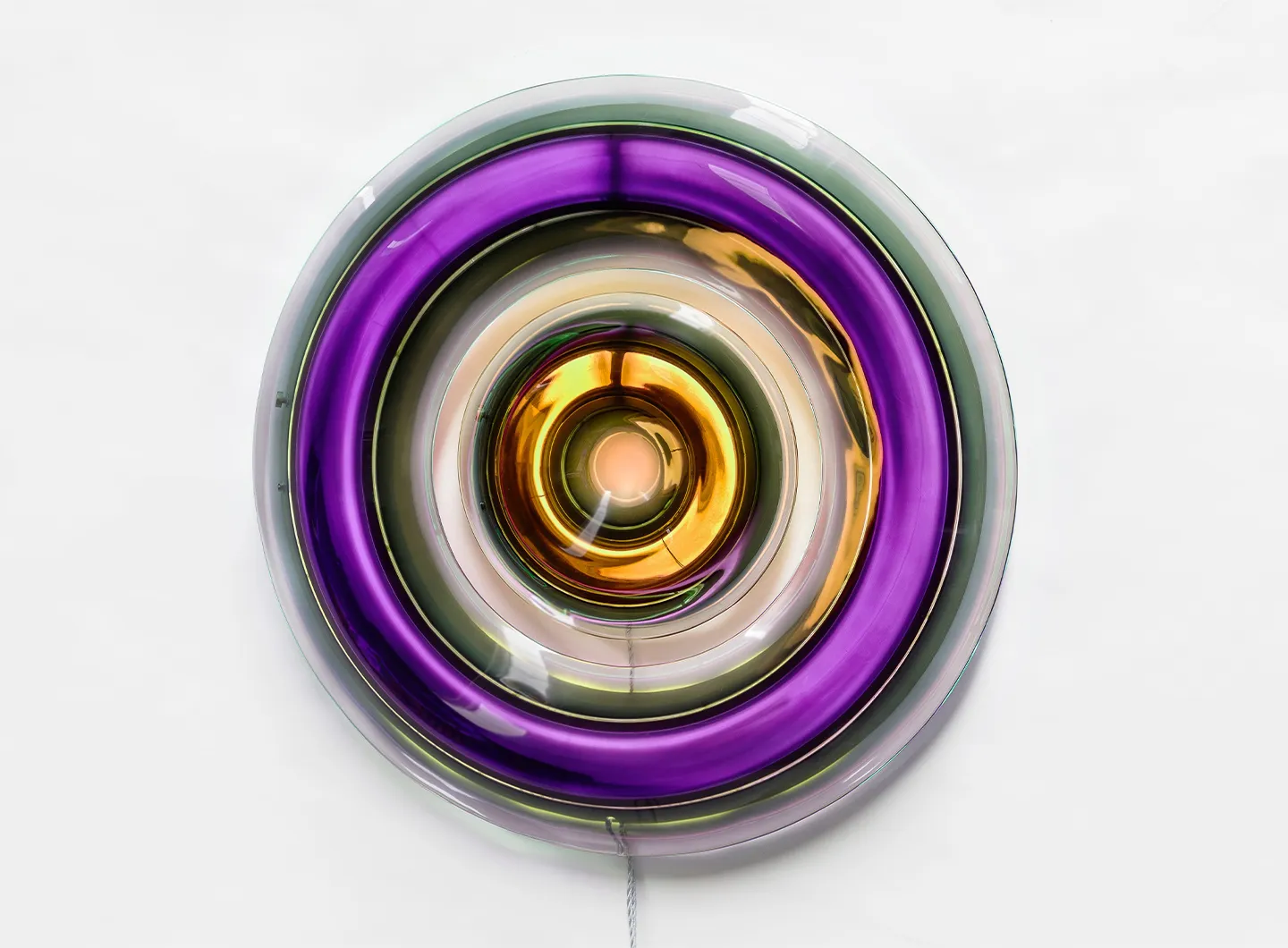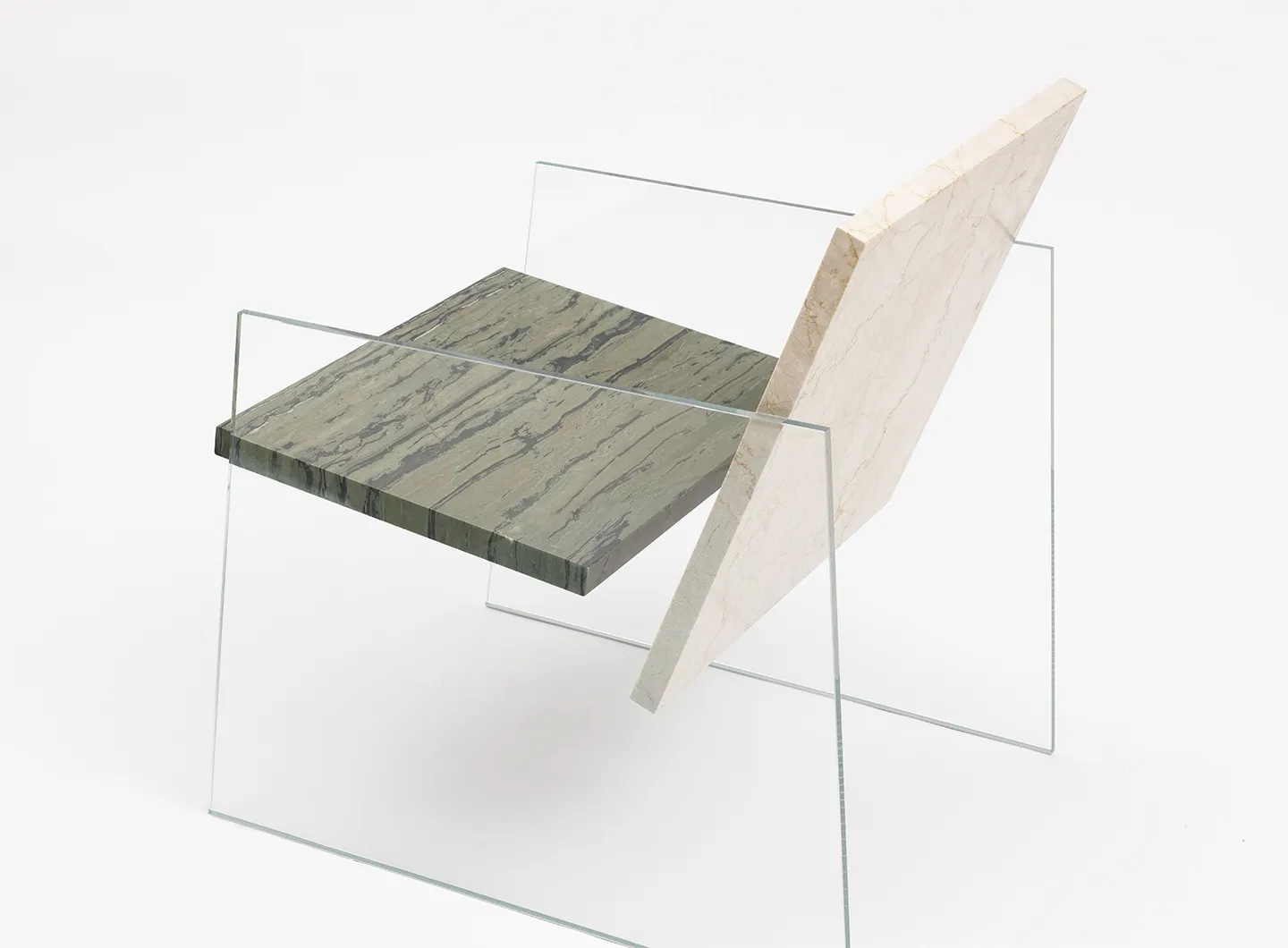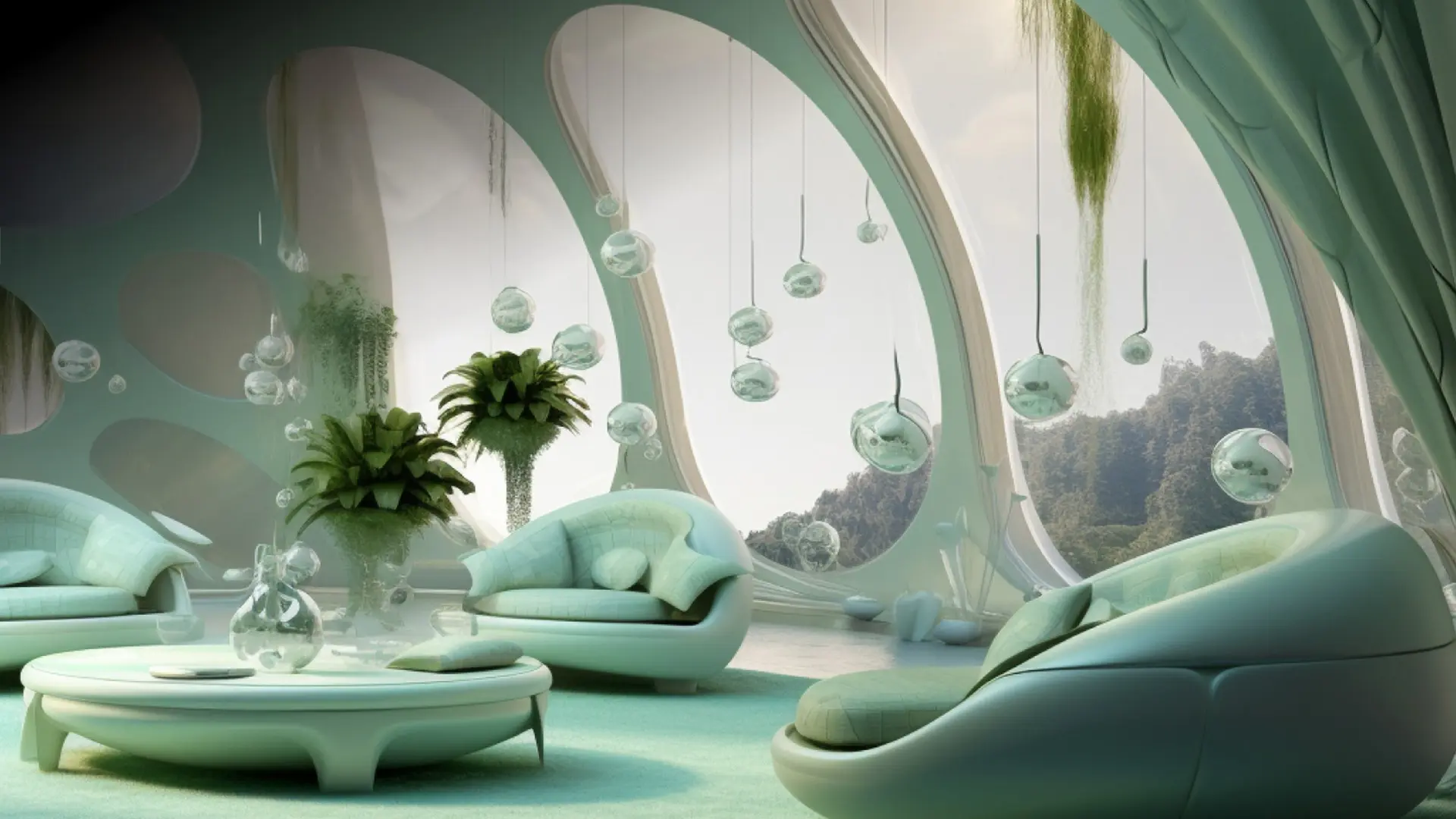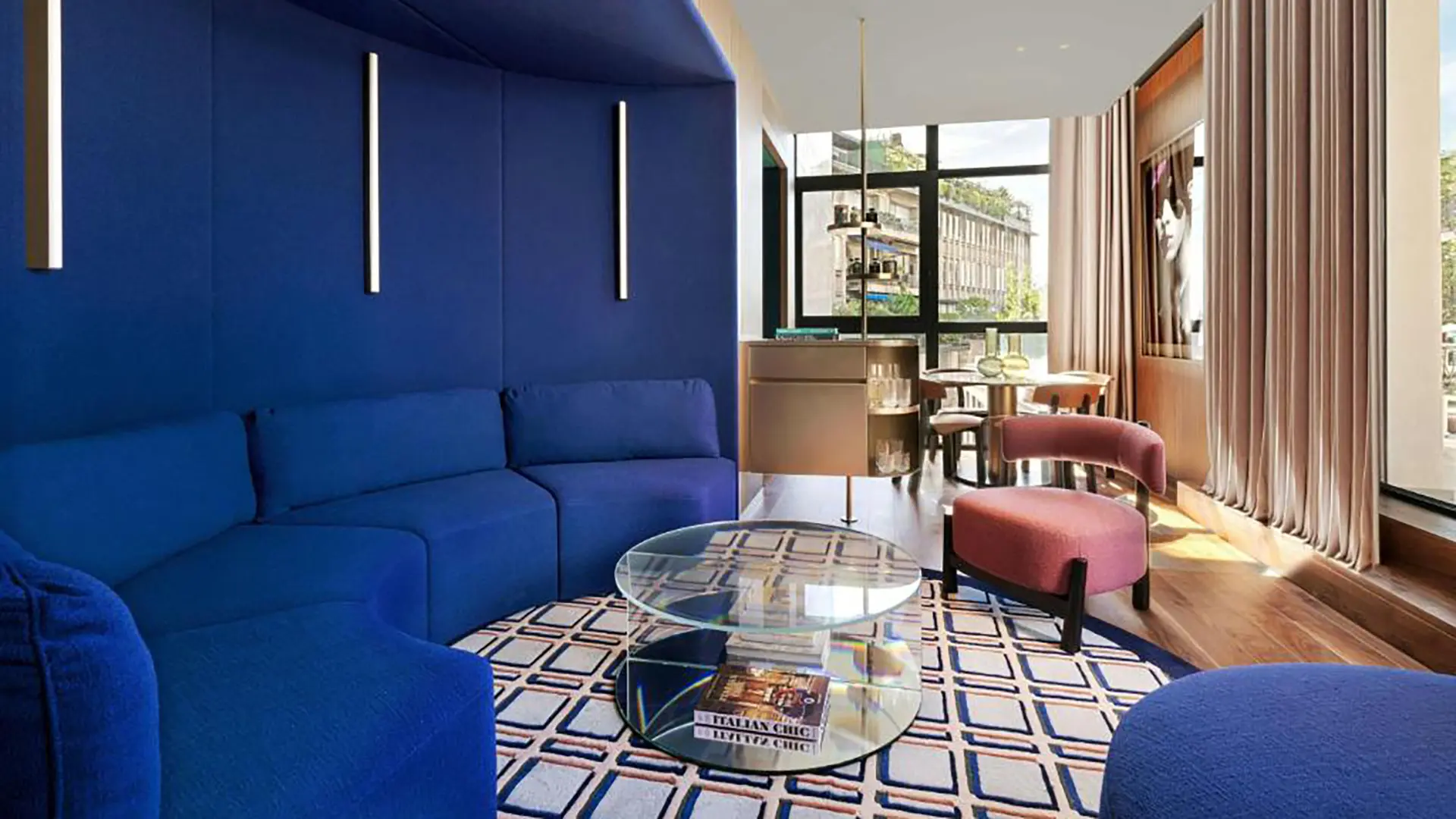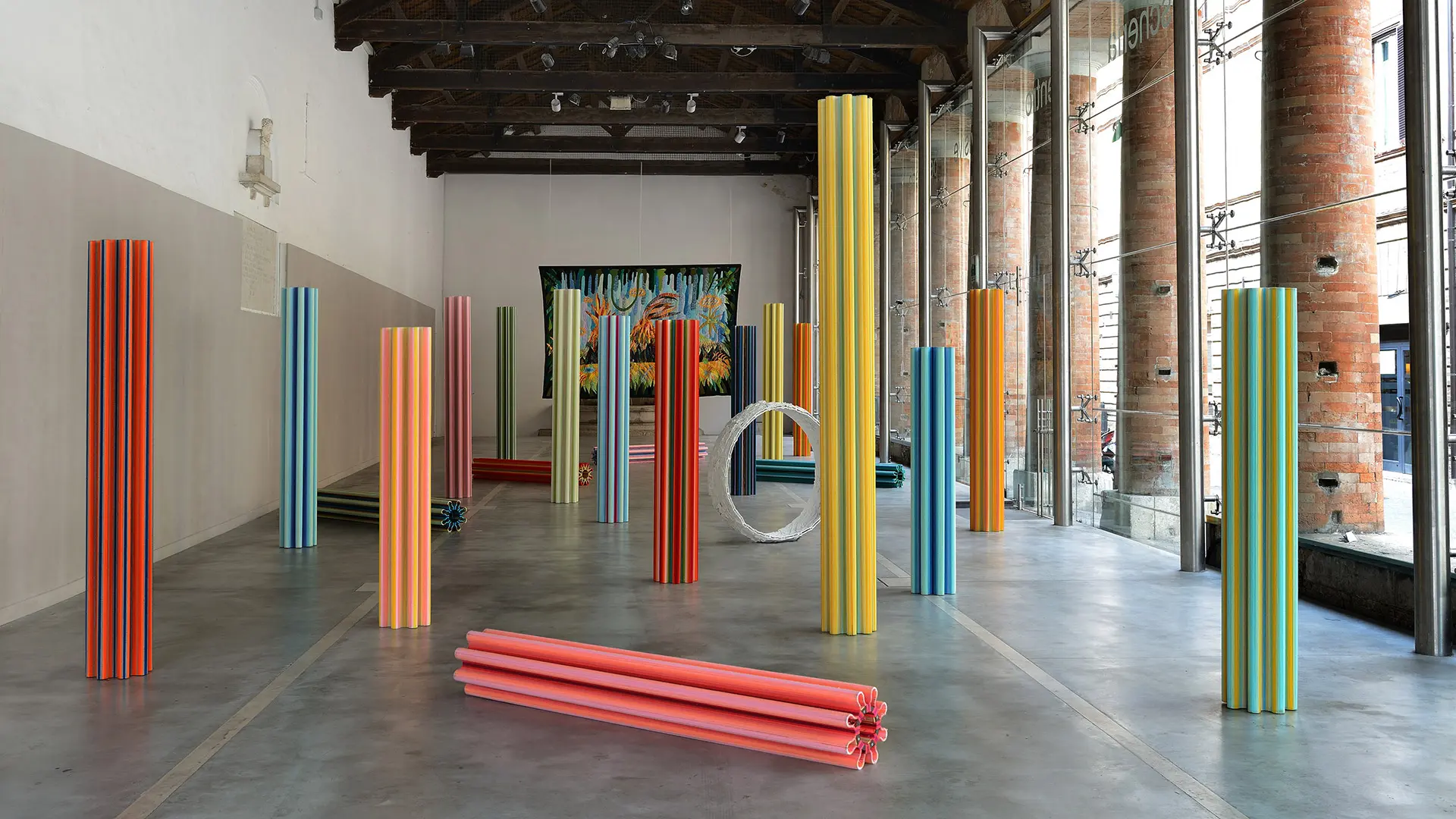From the Tokyo Design Awards, to the NY Product Design Awards & Architectural Design Awards, Best in Design, the NEB Trophy Design Competition, the Good Design Awards® and the Africa International Design Awards (AIDA), all the international news not to be missed in 2026
The exhibitions at the Lake Como Design Festival
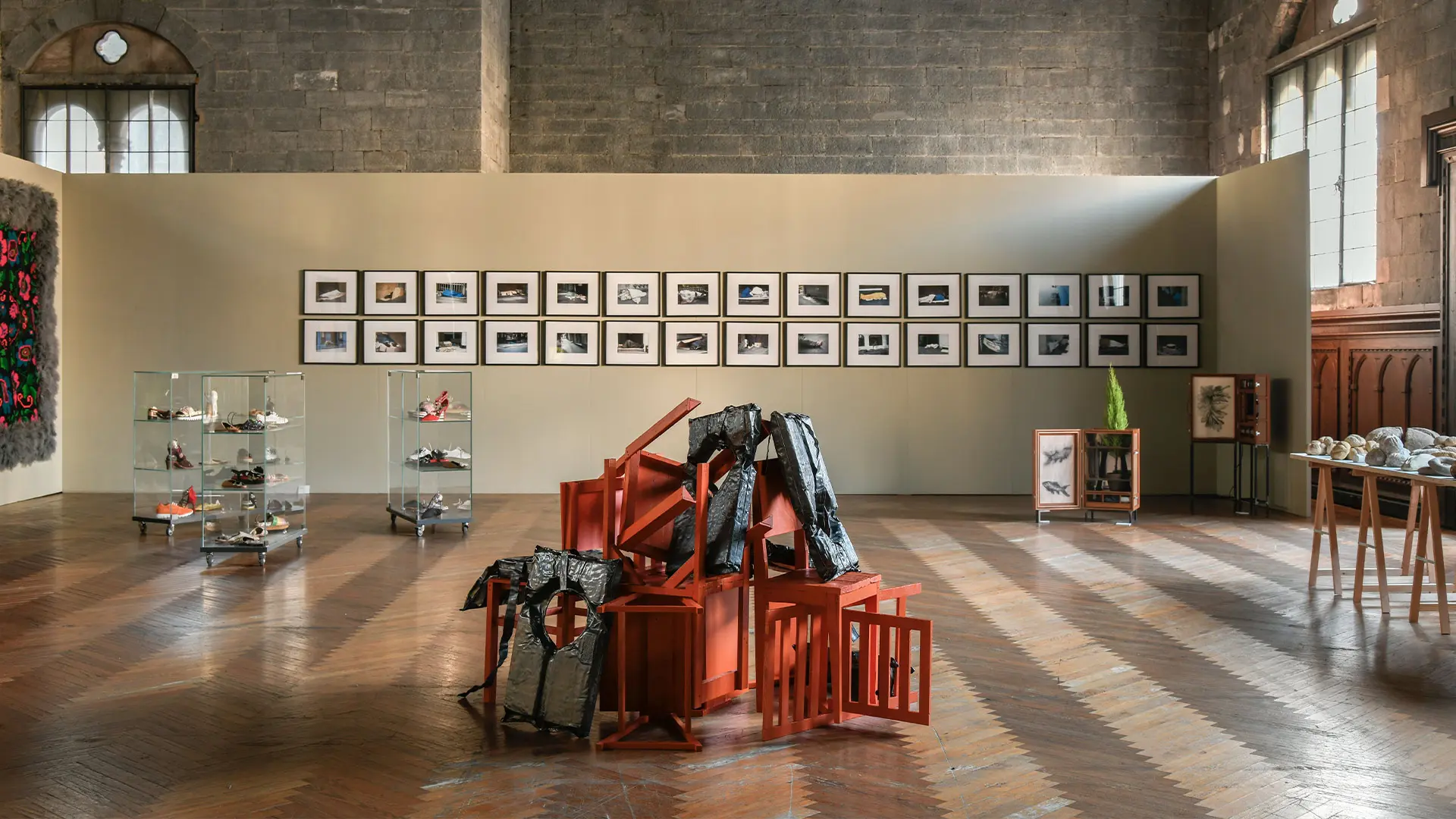
ERRANTI at Palazzo del Broletto, Lake Como Design Festival
A selection of installations displayed in the Lombard city last week, in the search for a neo-nomadism still firmly anchored to the historic parts of Como
The 2022 edition of the Lake Como Design Festival, its fourth, drew to a close yesterday . The decision to centre it around the inventive theme of neo-nomadism, cultural and working migrations caused by increasingly swingeing financial disparities and climate crises that can no longer be ignored, is a curatorial choice that dovetails perfectly with the founding mission of the event: to organise a unique mix of design and art, hosted in historic locations, some firmly hidden away, in the city of Como, which is scattered with architectural monuments.
It was in these history-steeped locations that the mission of this edition of LCDF played out. The decision to narrate new beginnings in historic buildings adapted from their original purpose made for a successful contrast and a fundamental framework for this Festival.
This aim is reflected in the words of Lorenzo Butti, creator and artistic director of the Festival, according to whom the event represented “a journey from the things history has passed down to us, leading to a fundamental awareness of the importance of conserving that which we have, the creation of what does not yet exist and promotion.”
ERRANTI, ART BEYOND THE BOUNDARY OF THE VISIBLE
The event unfolded in stages across Como’s urban centre. ERRANTI, the group exhibition curated by the theorist and art critic Francesca Alfano Miglietti, exemplified the nomadic theme by not being held in a single venue but unfurling across Palazzo del Broletto, Palazzo Mugiasca and the Casartelli Science Museum.
Miglietti conceived the exhibition as a selection of works designed to first take in the viewer and cause them to meditate on their meanings later. This was true of the Convivio installation by Daniela Novello, which appeared to be a banquet of bread but which is actually painted onto stones, a cunning juxtaposition of the sedentary nature of the rocks and the constant transport of grain, topical as never before. Then there was the square metre of soil from Como collected by Andrea Nacciarriti for his Per Square Meters, an all-out protest against the city’s housing crisis, and then Francesco Jodice’s short film Margine, an ongoing message of love/hate – as only a real love letter can be – about urban alienation. This painstaking work of film collage genius, enhanced by the montage of its co-writer Saverio Pesapane, was screened in its entirety in the cinema at the Casartelli Science Museum, where the typical smell and creaking of the ancient wood helped to make for a unique, timeless visual experience.
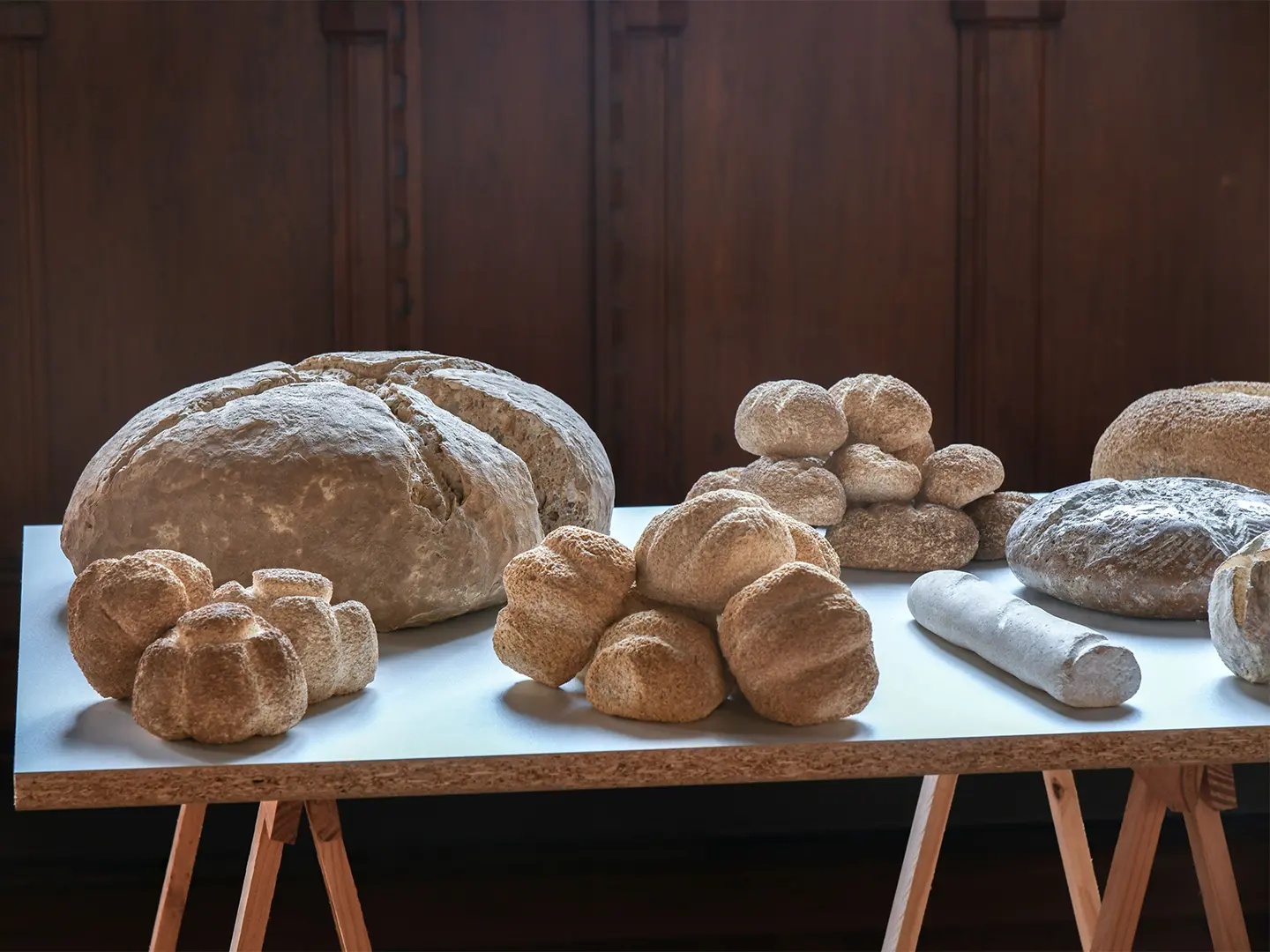
Convivio by Daniela Novello at Palazzo del Broletto, Lake Como Design Festival
CONTEMPORARY DESIGN SELECTION
Also at the Casartelli Museum, the Contemporary Design Selection was showcased in the hitherto private Sala Nobel, featuring an exhibition of works produced by independent designers from all over the world, thanks to a collaboration with the Catawiki online auction platform that fully embraced the Festival’s theme of neo-nomadism, as well as providing a commercial solution for the creative diaspora shaped by the new migrations.
It was an electic selection, championing works designed to represent the connection between people in the furthest-flung, liminal places; one such is the They Told Me chair by the cosmopolitan Duyi Han, a sort of paean to the loneliness of long-distance relationships which, at the feet of the chair, turns into an exhortation to flying, with the airport codes of the world’s largest cities embroidered on the fabric. Piscuni by Studio Foro, was born of a propitious encounter with a 93-year-old Chilean woman named Assunta, whose attachment to her country inspired the work, fashioned from local marble. It is interesting to think that, thanks to this auction, these products, narrators of the handing down of parallel yet compatible traditions and cultures, will have found a new use, a new owner and a new meaning.
GALERIE PHILIA
Moving towards the lakeside area of Como, the Festival allowed its visitors a unique opportunity to go inside the Casa Bianca, a historic residence opened to the public strictly for this event – having been put up for sale and purchased immediately. An unusual city asset, hidden away even from the Como habitués, the Casa Bianca deserves a couple of lines to itself: a majestic residence, a sequence of design styles from different eras, past but still fascinating, as is only the case with those things that survive the test of time. It proved a perfect backdrop for the selection of designers organised in collaboration with Galerie Philia, which gave carte blanche to the protagonists of the exhibition, thus overriding the concept of monothematic style, just like the Casa Bianca. This meant that the retro-futuristic Joy Circle lamps by Draga & Aurel, the physical study of lightness in Frederic Saulou’s Assise and the Japanese-inspired geometry of Wolf Chase by Lupo Horiōkami, among the many other projects on exhibit, were able to coexist in perfect harmony.
IN SEARCH OF LOST TIME
Continuing along the lakeside, a stroll up the Passeggiata Lino Gelpi leads to the Villa Gallia, normally used as the office of the Provincial Administration, but which became the venue for the In Search Of Lost Time exhibition during Festival week; organised in partnership with Movimento Club, it was inspired by Marcel Proust’s novel of the same name, attempting to pay homage to the French writer and agreeing with the statement that the present and the future of each one of us is dictated by our past. Movimento, a project sponsored by Artefatto, provided a temporal shock for the viewer, with a selection of contemporary designers set against the historical backdrop of a Neoclassical mansion, and making for an even sharper contrast by the decision to cover the floors of Villa Gallia in magenta, thus abstracting the past, future and present.
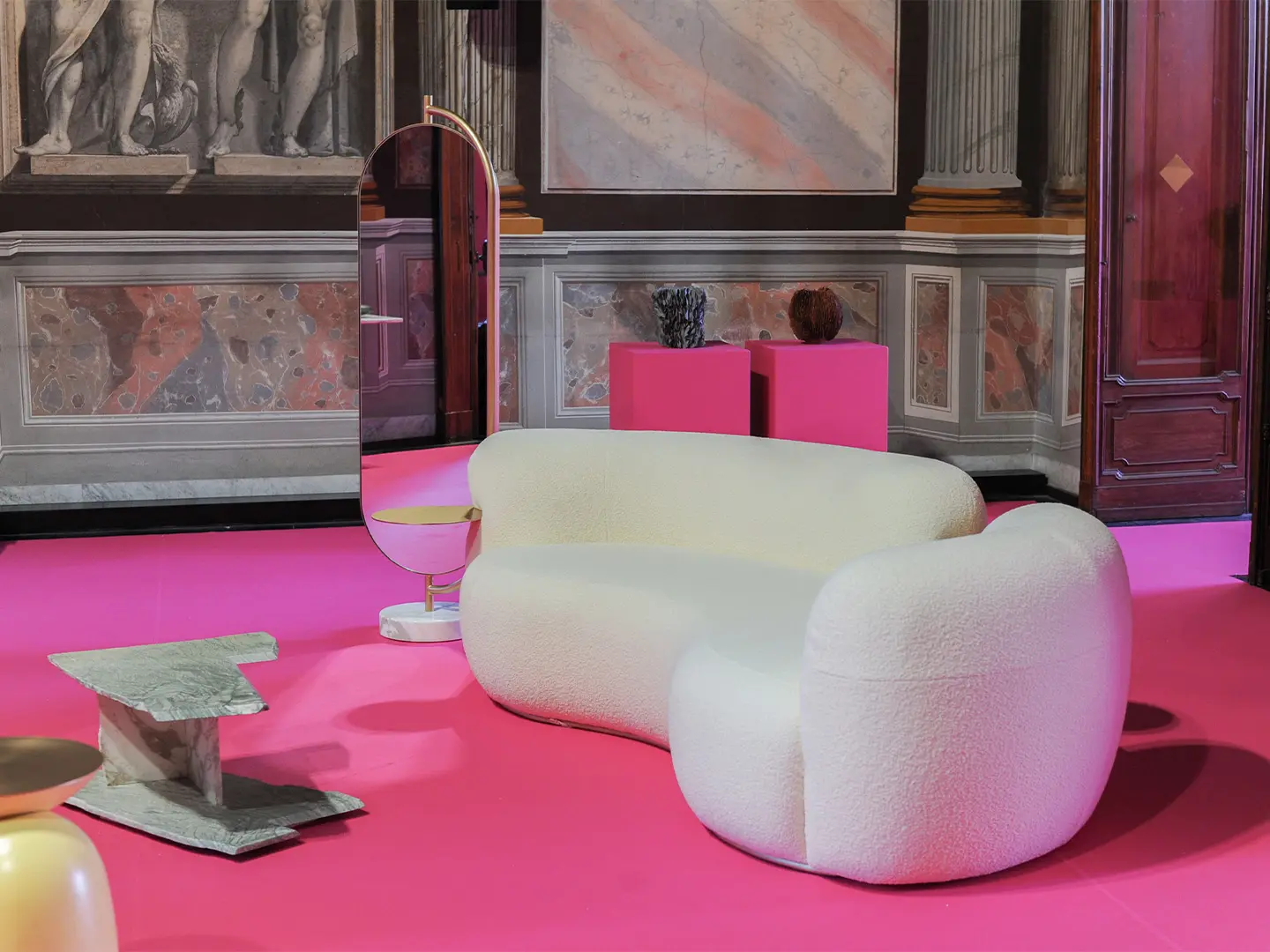
In Search of Lost Time at Villa Gallia, Lake Como Design Festival
THE OTHER EXHIBITIONS
It wouldn’t be right to talk about the Festival without at least mentioning Como Razionalista, the exhibition on Fascist architecture of the past in Como, with the Casa del Fascio, the Monument to the Fallen and Casa Cattaneo in Cernobbio, major testaments to the history of the city. Nor would it be appropriate to leave out Refreshment, the talk section of the Festival, curated by Prashanth Cattaneo with guests Studio Calvi Brambilla, Ivan Bargna, studiowok, Tommaso Melilli, Giulio Cappellini and Italo Rota, with the work of the anthropologist Vito Teti as its starting point, for further reflection on neo-nomadism, this time in terms of those who stay put while others decide to leave.


 Salone Selection
Salone Selection
